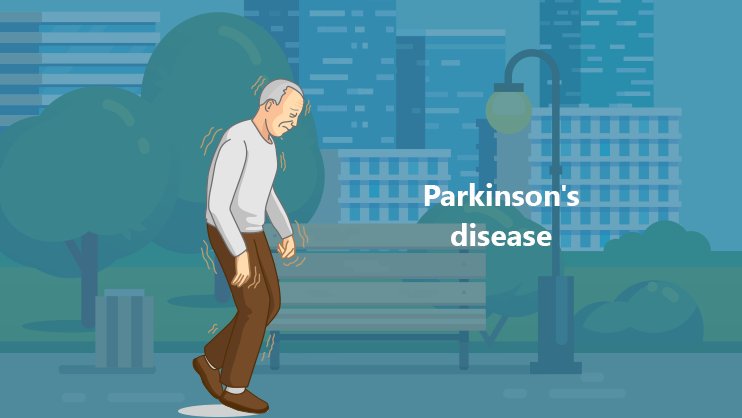اختلال در ریتم شبانه روزی بدن نشانه ابتلا به پارکینسون است

اختلال در ریتم شبانه روزی بدن نشانه ابتلا به پارکینسون است
 طبق نتایج یک مطالعه جدید، مردان مسنی که ریتم شبانه روزی ضعیف یا نامنظمی در طول روز دارند، با احتمال بیشتر ابتلا به بیماری پارکینسون در سنین بالاتر مواجه هستند.
طبق نتایج یک مطالعه جدید، مردان مسنی که ریتم شبانه روزی ضعیف یا نامنظمی در طول روز دارند، با احتمال بیشتر ابتلا به بیماری پارکینسون در سنین بالاتر مواجه هستند.
محققان دانشگاه کالیفرنیا در این مطالعه به مدت ۱۱ سال حدود ۳۰۰۰ مرد مسن را که تنها زندگی میکردند مورد مطالعه قرار دادند.
دانشمندان عنوان میکنند کشف رابطه بین ریتم شبانه روزی و بیماری پارکینسون بیانگر این است که این اختلالهای شبانه روزی ممکن است بازتاب فرایند بیماری فساد عصبی باشند که قبل از تشخیص بیماری پارکینسون بر ساعت درونی مغز تأثیر میگذارد و میتواند نشانه هشداردهنده اولیه بیماری باشد.
مشخصه بیماری پارکینسون، عدم کنترل بر حرکت، حفظ تعادل و سایر عملکردهای مغزی است.
کریستین یاف، سرپرست تیم تحقیق، در این باره میگوید: به نظر میرسد قدرت فعالیت ریتم شبانه روزی تأثیر مهمی بر سلامت و بیماری بخصوص با افزایش سن دارد. ما دریافتیم حتی تغییرات کوچک در ریتم شبانه روزی در مردان مسن با احتمال بیشتر ابتلا به پارکینسون مرتبط است.
بیماری پارکینسون، دومین اختلال شایع فساد عصبی، بعد از بیماری آلزایمر است. عمدتا بیماری پارکینسون بعد از سن ۶۰ سالگی تشخیص داده میشود. در حال حاضر هیچ دارویی برای پیشگیری از بیماری وجود ندارد اما درمانهایی برای تسکین علائم آن وجود دارد.
در بین افراد مسن، استراحت و فعالیت نامنظم شایع است. مشکلات دیگری نظیر یبوست یا از بین رفتن حس بویایی هم با افزایش احتمال ابتلا به بیماری پارکینسون مرتبط است.
 Older men who have a weak or irregular circadian rhythm guiding their daily cycles of rest and activity are more likely to later develop Parkinson’s disease, according to a new study.
Older men who have a weak or irregular circadian rhythm guiding their daily cycles of rest and activity are more likely to later develop Parkinson’s disease, according to a new study.
Older men who have a weak or irregular circadian rhythm guiding their daily cycles of rest and activity are more likely to later develop Parkinson’s disease, according to a new study by scientists at the UC San Francisco Weill Institute for Neurosciences who analyzed 11 years of data for nearly 3,000 independently living older men.
The scientists said their discovery of the link between circadian rhythms and Parkinson’s — a disease characterized by loss of control over movement, balance and other brain functions — suggests these circadian disruptions may reflect neurodegenerative disease processes already affecting the brain’s internal clock well before a Parkinson’s diagnosis, and that they could be considered an early warning sign of the disease.
“The strength of the circadian rhythm activity seems to have a really important effect on health and disease, particularly in aging. In this latest study we found that even small changes in circadian rhythm in older men were associated with a greater likelihood of getting Parkinson’s down the line,” said study senior author Kristine Yaffe, MD, the Roy and Marie Scola Endowed Chair and vice chair of the Department of Psychiatry at UCSF, a professor of psychiatry, neurology, and epidemiology and biostatistics, and a member of the UCSF Memory and Aging Center.
Parkinson’s is the second most common neurodegenerative disorder after Alzheimer’s disease. 500,000 individuals in the United States have been diagnosed with Parkinson’s disease, and many with the disease are undiagnosed, according to the National Institute of Neurological Disorders and Stroke. Most who have Parkinson’s are diagnosed after age 60. There are no drugs known to prevent the disease, but there are a growing number of treatments to relieve symptoms.
Among older adults, weakened or irregular circadian rhythms of rest and activity are common, according to study lead author Yue Leng, MD, PhD, an assistant professor of psychiatry at UCSF. Other conditions — constipation or deficits in the sense of smell — have also been associated with increased likelihood of developing Parkinson’s later on.

